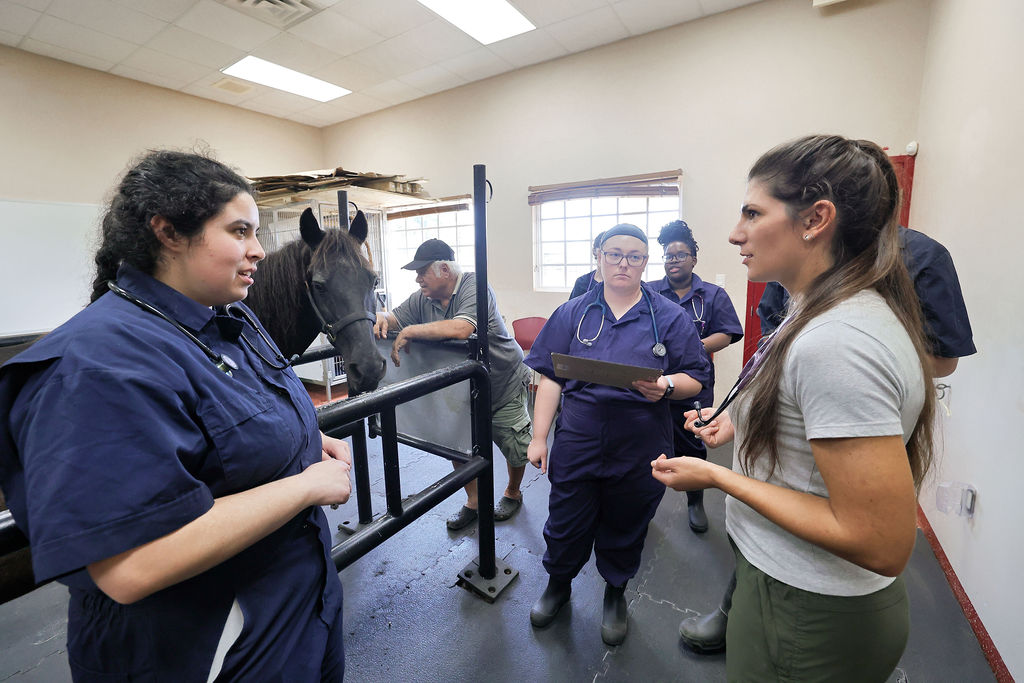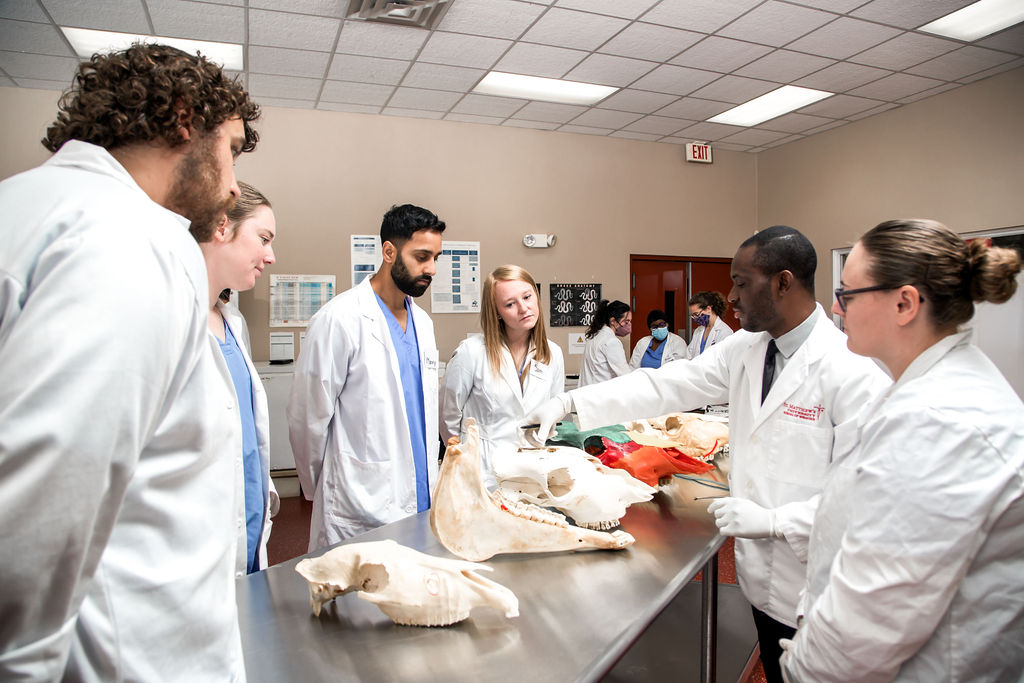
How to Prepare for a Career in Veterinary Medicine?
Prepare for a veterinary career by developing your pre-vet knowledge and abilities, exploring vet school requirements, enhancing your application, and preparing effectively for the admissions process.
Preparing for a career in veterinary medicine can be an intimidating process, but with the right amount of planning, research and hard work, you can make your dream of becoming a practicing veterinarian come true!
From exploring vet school requirements to improving your application to preparing for interviews, there are many steps along the way that can help you enter vet school and begin your journey towards the rewarding field of animal healthcare.
In this guide, we’ll explore some of the key steps you should consider taking as you plan your path forward.
Understand the Interpersonal Traits a Good Vet Should Have
To succeed in this field of practice, you need more than just good grades and a love for animals. You also need to develop certain personal and professional qualities that will help you succeed as a vet. Here are a few such qualities to work on:
- Communication skills: The ability to communicate complex topics in layman’s terms is essential when consulting with pet owners about the best care options for their animals.
- People skills: Veterinary medicine careers are service-oriented, requiring the ability to build relationships with clients, colleagues and animals. This includes being empathetic, patient and understanding of the needs of both humans and animals.
- Ability to work under pressure: From medical emergencies to tight schedules, veterinarians must work quickly and efficiently in stressful situations. Being able to remain calm and make sound decisions under pressure is a must.
- Scientific curiosity: Veterinary medicine is a science-based career, so developing a passion for learning new things and applying scientific principles to your work will be very beneficial.
Gain Veterinary Experience through Volunteering or Work
Volunteering or working at a veterinary office is an excellent way to become more familiar with the process of becoming a veterinarian and gain valuable experience that can help you get accepted into vet school.
Not only will it give you hands-on exposure to the work environment, but it will also provide insight into the day-to-day operations of a veterinary practice, as well as veterinary career paths you might pursue. You’ll also be able to network with professionals in the field and make valuable connections that can help you throughout your career.
In addition to volunteering at a vet office, you can also volunteer or work at local animal shelters or animal control units. This will give you further insight into the industry and provide you with experience working with animals.



Seek Mentorship from Practicing Veterinarians
It’s important to ask the professionals you meet at a veterinary office or animal shelter about their experience in this field. Ask them what they love and don’t love about their work, what to do to become a veterinarian, how they got started in the field, what to study to become a veterinarian, and how they prepared for vet school.
You can also inquire about the challenges associated with being a veterinarian and the skills and qualities they believe are important for success in this field. Getting these insights from experienced professionals can help you better understand the career and decide if it’s the right path for you.
Begin Your Veterinary Career Preparation Early
Getting accepted into veterinary school is a highly competitive process, so it’s important to start your preparation early and establish the key prerequisites you’ll need to have in order to be an attractive candidate.
You can work with a guidance counselor at your current school to choose the best classes for getting into vet school. While science courses are essential, you should also consider taking other subjects, such as English and Social Sciences, as these can also help you develop the communication and interpersonal skills needed for a successful career as a veterinarian.
Research Veterinary Schools
When it’s time to actually apply to vet school, you will need to do extensive research in order to make the best veterinary school choice for your learning style and career goals. Becoming familiar with the admission requirements, typical educational costs, and each school’s academic strengths and weaknesses, will help you make an informed decision about which schools to include on your application list.
Once you’ve narrowed down your options, contact each school’s admissions department and consider taking a campus tour to get acquainted with the facilities and faculty. Doing so will give you a good sense of the overall atmosphere of the school and allow you to gain firsthand knowledge about what it’s like to be a student at that particular institution.
Join Pre-Veterinary Groups, Associations and Professional Organizations
Joining interest groups, associations or organizations related to veterinary medicine can help you build a network of contacts and gain valuable knowledge about the field. Some examples include:
- American Association of Bovine Practitioners (AABP)
- American Veterinary Medical Association (AVMA)
- Association of Avian Veterinarians (AAV)
- National Animal Supplement Council (NASC)
- National Association of Veterinary Technicians in America (NAVTA)
- Student American Veterinary Medical Association (SAVMA)
These groups can provide you with access to career mentors, educational resources and networking opportunities that can help you prepare for a successful career in veterinary medicine.
Build a Competitive Veterinary School Application
It is important to ensure that you put together a strong, well-written and informative application package. While good grades are important for getting into vet school, your application should also highlight any other vet experiences that have helped to develop your understanding of the veterinary field.
Emphasize any unique skills, passion or qualities you possess that would make you an ideal candidate for the program. You can use our guide to applying to veterinary school to help you prepare an effective and competitive application.
Additional Tips to Strengthen Your Veterinary Career Preparation
Here are a few extra tips to help you further prepare for a career in veterinary medicine:
- Take advantage of career resources available at schools, community colleges, local libraries and veterinary school admissions offices. This includes attending career fairs and informational sessions.
- If possible, work for multiple veterinary care facilities to gain broader exposure to the field. For instance, you could volunteer at an animal hospital or a shelter, and work as an assistant in a private practice.
- Keep a journal of your experiences. Write down what you’ve learned, which techniques you find most helpful and what challenges you faced. This will help you reflect on your journey and be able to articulate your experiences when applying for vet school.
- Ask for more responsibility if you feel comfortable doing so. For example, you can ask to help with complex cases or assist the vet with diagnostic tests.
- Read up on the latest developments in veterinary medicine. This will help you keep track of emerging trends and technologies, which can help you stand out when applying to vet school or participating in admissions interviews.
- Network with professionals in the field by attending conferences, seminars and other events. These can help you build your professional network and gain valuable insights into the veterinary profession.
Apply to a Veterinary School That Supports You
Finding a school that understands your interests, goals and career aspirations will help you to feel more comfortable with the overall process of applying and attending vet school.
At St. Matthews University School of Veterinary Medicine, we offer a DVM program experience that is tailored to foster academic, personal and long-term success. Our faculty members are dedicated to providing personalized guidance and comprehensive instruction in order to help vet students develop their knowledge, abilities and passion for care.
So, if you’re looking for a school that will support your journey toward becoming a practicing veterinarian in the U.S. and Canada, consider applying today!
In the interim, learn more about us in this student testimonial video:
We also entourage you to contact us with questions or for admissions support.
FAQs About Future Veterinarians
While there isn’t a “best” major for aspiring veterinarians, most should consider fields like animal science, biology or zoology. However, any major works if you complete the prerequisite courses from the DVM program of your choosing. Focus on maintaining a high GPA and gaining animal experience.
Hands-on experience is a vital process of becoming a veterinarian. Volunteer at animal shelters, veterinary clinics or wildlife centers. Shadowing veterinarians, working as a veterinary assistant or gaining experience with livestock can also provide you with valuable vet work experience tips. The more in-person exposure, the better prepared you will be for vet school.
The American Veterinary Medical Association provides school lists and requirements. Pre-vet clubs, online forums and veterinary school websites offer guidance. Academic advisors and career counsellors can also help you decide what to do to become a veterinarian and connect you with mentorship opportunities.
This will depend on your interests and strengths. Is veterinary school hard? Yes – it’s challenging and competitive. Both require extensive prerequisite work, strong GPAs and relevant experience. Whether you’re pursuing a Doctor of Veterinary Medicine (DVM) degree or Doctor of Medicine (MD) degree, both require dedication and hard work.